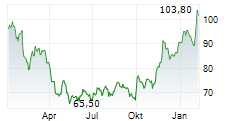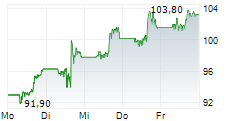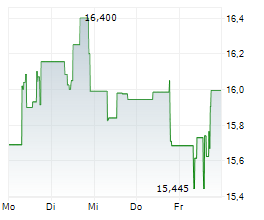KENILWORTH (NJ) (dpa-AFX) - Merck & Co., Inc. (MRK), in collaboration with Daiichi Sankyo, Monday has announced that the first patient has been dosed in the Phase 3 IDeate-Esophageal01 trial.
This global study evaluates the safety and efficacy of the investigational drug ifinatamab deruxtecan (I-DXd) against the physician's choice of chemotherapy in patients with unresectable advanced or metastatic esophageal squamous cell carcinoma (ESCC) who have progressed after platinum-based chemotherapy and an immune checkpoint inhibitor.
Ifinatamab deruxtecan is a potential first-in-class B7-H3-directed antibody-drug conjugate (ADC), jointly developed by Merck and Daiichi Sankyo. ESCC accounts for nearly 90% of global esophageal cancer cases, with a five-year survival rate of only 15% to 20%, particularly poor among patients diagnosed at advanced stages.
Daiichi Sankyo's oncology development lead, Dr. Mark Rutstein, highlighted that patients with metastatic ESCC face limited options, and early clinical signals support further investigation of I-DXd. Merck's oncology clinical head, Dr. Marjorie Green, stated that this trial reflects their shared goal of expanding access to potentially transformative therapies in cancers with high unmet needs.
The Phase 3 trial builds on data from the IDeate-PanTumor01 Phase 1/2 study, where I-DXd demonstrated encouraging responses in heavily pretreated ESCC patients.
About IDeate-Esophageal01: This open-label, randomized Phase 3 study compares I-DXd (12 mg/kg) to chemotherapy (paclitaxel, docetaxel, or irinotecan) in patients with advanced ESCC who have received one prior systemic therapy. The primary endpoint is overall survival, with progression-free survival, objective response rate, and safety as secondary measures. Around 510 patients will be enrolled across Asia, Europe, and North America.
About ESCC: In 2022, over 500,000 esophageal cancer cases were diagnosed globally, with ESCC comprising the majority. The disease has poor long-term survival rates and is particularly prevalent in Eastern Asia. Treatment options are especially limited for patients who progress beyond first-line therapy.
About B7-H3 and I-DXd: B7-H3 is a transmembrane protein commonly overexpressed in several cancers, including ESCC, and is associated with poor prognosis. I-DXd is engineered using Daiichi Sankyo's proprietary DXd ADC technology, which links a B7-H3-targeted antibody to a chemotherapy payload via a cleavable linker.
Beyond ESCC, I-DXd is being evaluated in additional trials for small cell lung cancer and other solid tumors. It has received orphan drug designations in the U.S., EU, Japan, and Taiwan for small cell lung cancer.
Merck-Daiichi Sankyo Collaboration: The companies began their ADC collaboration in October 2023, sharing global development and commercialization rights (excluding Japan, where Daiichi Sankyo retains rights). In August 2024, the partnership expanded to include the B7-H3-targeting agent gocatamig.
About Daiichi Sankyo's ADC Program: The company has two proprietary ADC platforms. Its DXd ADC platform includes approved drugs ENHERTU (HER2) and DATROWAY (TROP2), and investigational therapies like I-DXd and others. A separate platform utilizes pyrrolobenzodiazepine payloads, with the first candidate, DS-9606, in early development.
MRK is currently trading at $77.17, or 1.46% higher on the NYSE.
Copyright(c) 2025 RTTNews.com. All Rights Reserved
Copyright RTT News/dpa-AFX
© 2025 AFX News




